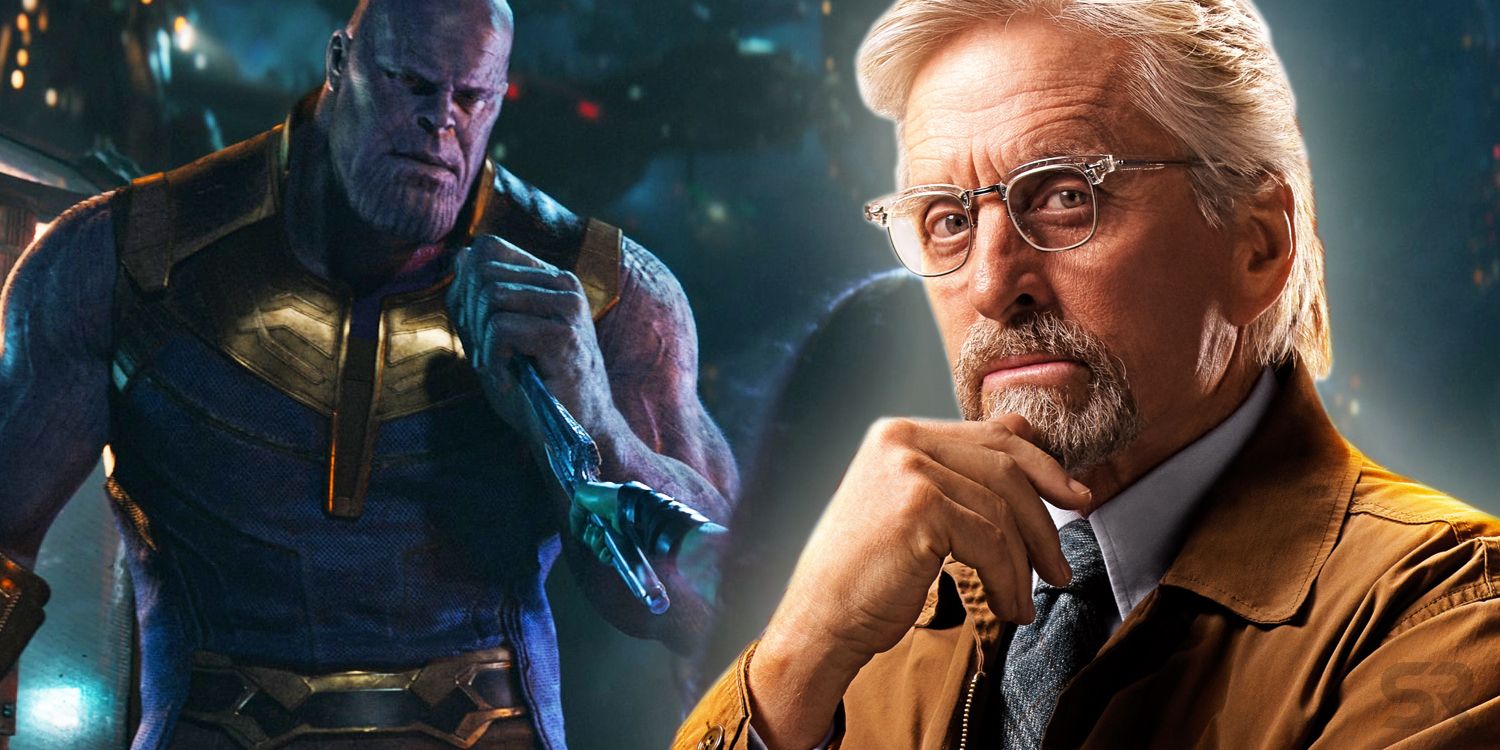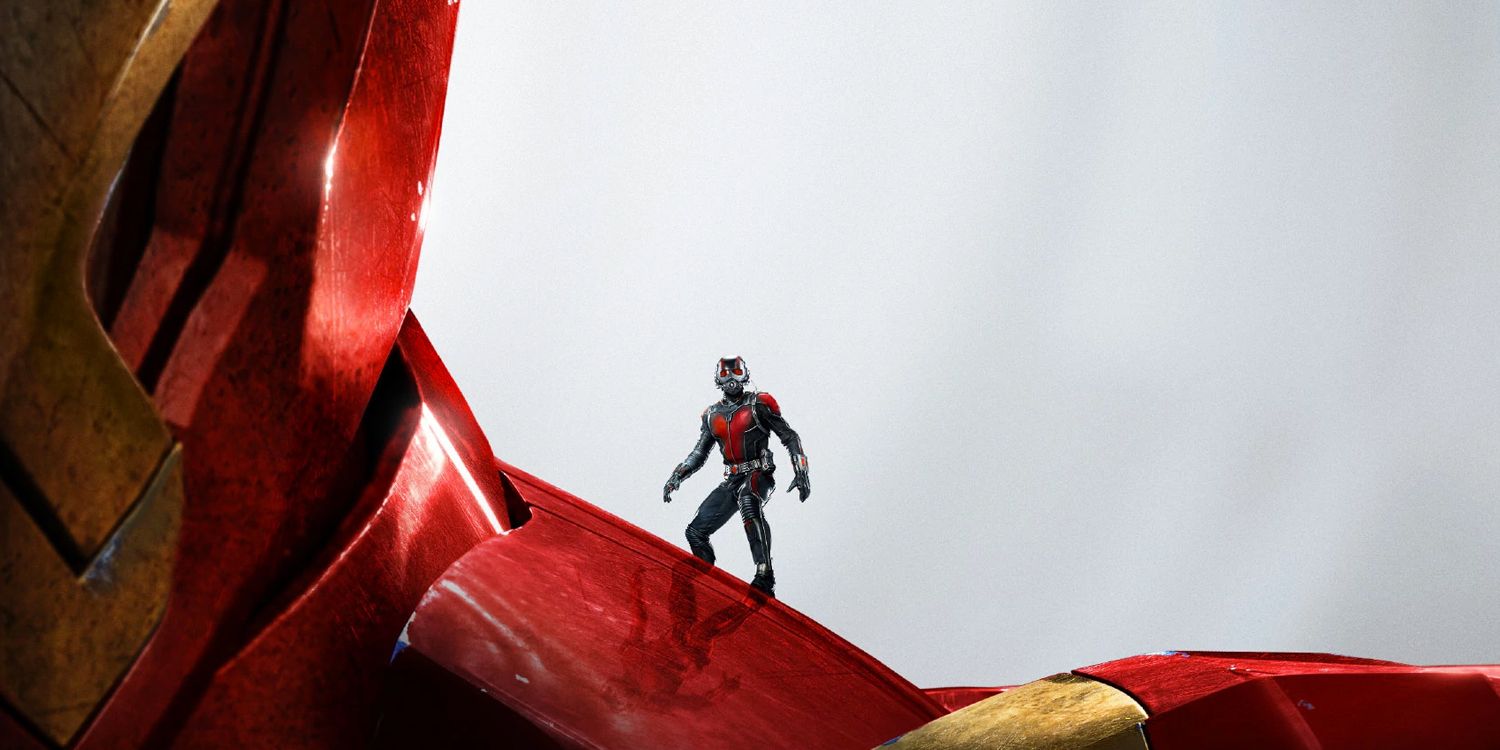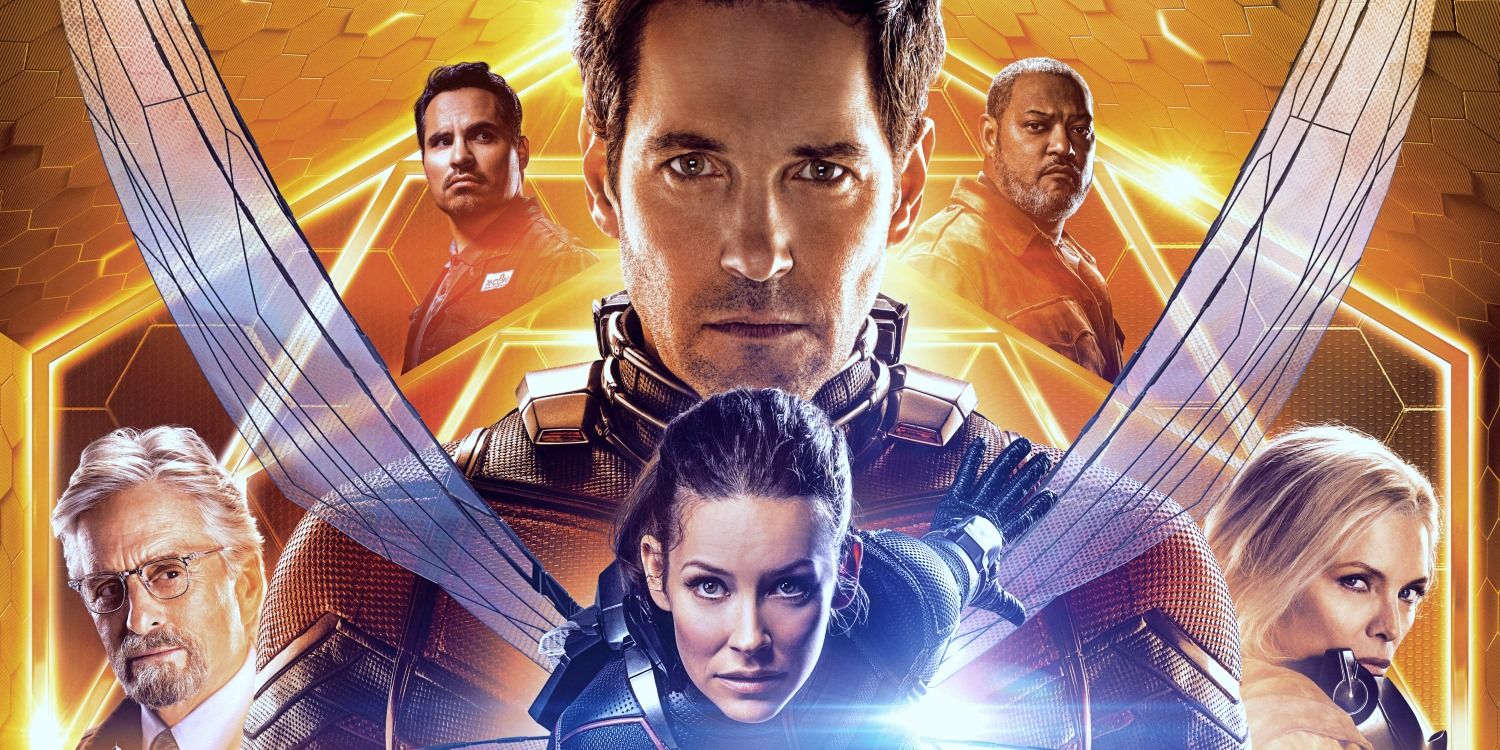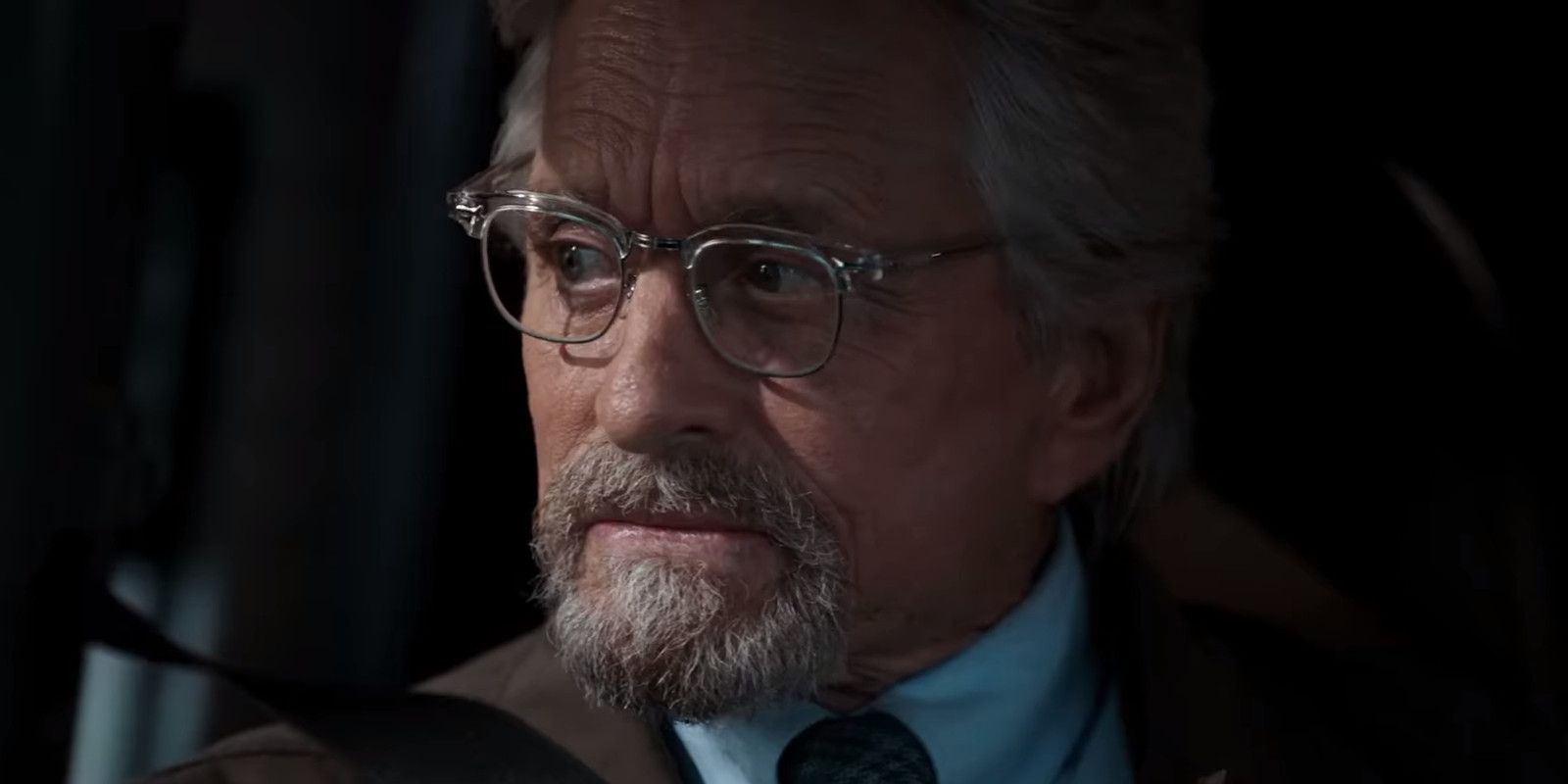Warning: SPOILERS ahead for Ant-Man and The Wasp.
-
It may not be most long-awaited, game-changing, or critically-lauded superhero film of the year, but Ant-Man and The Wasp was the follow-up Marvel fans (and maybe the summer blockbuster season, period) needed after the shell-shock of Avengers: Infinity War.
A light-touch action-comedy with relatively small stakes (can Janet Van Dyne be rescued from the Quantum Realm? Will Scott Lang pull off his mission without being discovered and thus escape his house arrest sentence?) and character relationships that are decidedly human-scale (even the phase-shifting "villain" Ghost is ultimately just trying to cure herself of a painful condition), it bounds along with an energy more akin to a late-1990s sci-fi comedy in the vein of The Nutty Professor or Flubber than the rest of its Marvel brethren; identifiable as a "superhero" movie chiefly in the sense that its title characters have costumes and nicknames and Scott is all-too-eager to remind his colleagues that he (briefly) fought alongside Captain America.
Related: How Ant-Man and the Wasp Connects To Infinity War
All told, a fitting form for a property that's become something like the "sherbert course" of Marvel Cinematic Universe. And, after Avengers: Infinity War, that was just what was needed.
- This Page: Ant-Man 1 Was What The MCU Needed After Age of Ultron
- Page 2: Hank Pym Makes Ant-Man and the Wasp The Perfect Counterpoint To Infinity War
Ant-Man 1 Was What The MCU Needed After Age of Ultron
It's easy to forget, particularly in hindsight, that the MCU was in something of an uneasy place (or, at least, as close to "uneasy" as things had gotten for the essentially-bulletproof box-office juggernaut that the Disney/Marvel machine has evolved into by this point) when the original Ant-Man was poised to open. While a major hit initially embraced with solid enthusiasm by fans and audiences, Avengers: Age of Ultron was not quite as universally-hailed as the original Avengers, facing stiffer criticism for too many world-building side-stories and what some saw as an uncomfortably-rendered subplot about Black Widow's infertility-anxieties. More troublingly, rumors of breaking-point tensions between actors, filmmakers and MCU mastermind Kevin Feige with Marvel-proper's infamously-prickly CEO Ike Perlmutter had begun to swirl in the press alongside talk of "creative burnout" around director Joss Whedon.
If there was ever a point where the grand MCU "experiment" could have begun to slide in the wrong direction early, this would have been it (though some tension would eventually be relieved when Disney split Marvel Studios into its own division to negate Perlmutter's influence over the films), and Ant-Man was widely expected to produce more issues. A long-delayed feature based on a largely-unknown character, it had been meant to show off the ability of the Cinematic Universe to incorporate the auteur sensibilities of iconoclast comedy director Edgar Wright... but would instead arrive completed under a (largely unfair) cloud of fanboy suspicion by Peyton Reed after Wright bailed on the project. It was a minor movie primed to face massive scrutiny.
And yet, thanks in no small part to an exceptionally sly "lean into the skid" humor-focused marketing campaign and the fact that Reed and Marvel had hammered together a decidedly solid family-friendly action-comedy against all odds, Ant-Man turned out to be not simply a fun time at the movies in its own right and the launch-pad for yet another successful Marvel franchise but proof positive that the genre itself was capable of some much-needed deflation. The film's signature visual-gag, zooming out from "epic" bug-sized battles to reveal the thunderous explosions and clashing fisticuffs as little more than action-figures clattering around on a play-table, was exactly the sort of endearing mockery the MCU and superheroes, in general, were due for after the deadeningly-serious Sturm-und-Drang that had characterized Avengers: Age of Ultron's city-flattening brand of finale.
Related: Ant-Man's Spider-Man Reference: Who Else Was Luis Talking About?
That's not to say there was nothing "serious" happening in Ant-Man, or that there aren't similarly weighty things going on in its sequel. Indeed, given that we're talking about the made-up lives of costumed cartoon-characters the degree to which any of these proceedings matter is all a matter of setup and execution: Audiences didn't burst out laughing at Batman v Superman's "Martha Moment" even as they sobbed through Guardians of The Galaxy 2's Ravager Funeral because weepy raccoons and space-pirates are more innately compelling than human beings who miss their mothers - one film simply connected more with the audience than the other. So it was with Ant-Man, where for all the even-silly-for-a-Marvel-movie gags, Scott Lang and Hank Pym's shared quest (they both want to undo past failings as fathers) registered deeply with filmgoers.
Page 2 of 2: Hank Pym Makes Ant-Man and the Wasp The Perfect Counterpoint To Infinity War
Ant-Man and the Wasp Is The Perfect Follow-Up To Infinity War
To that end, Ant-Man and The Wasp follows up Avengers: Infinity War's fate-of-the-galaxy storyline (or, rather, runs alongside it - the obligatory post-credits bonus scene establishes that this film's day-long adventure has taken place either during or just prior to the big Avengers showdown) with a story that's even more personal-scale than its own predecessor. Sure, the original Ant-Man ended with Scott wrestling with Yellow-Jacket in his daughter's bedroom, but there was the fig-leaf of the conventional "bigger threat" that he was going to sell his cloned Pym Particle technology to HYDRA and threaten the world. The sequel makes no such attempt at suggesting a bigger, broader struggle at hand/ Scott, Hope and Hank are trying to rescue Janet - one person - from The Quantum Realm, and the device Ghost wants to activate in order to cure her dimensional-displacement injuries would render them unable to do this and might also cause Janet harm. Also, if Scott gets caught breaking his parole, he doesn't get to go free and spend more time with his family.
Related: Ant-Man And The Wasp's Ending & MCU Future Explained
That's it - that's the entirety of the "stakes" in Ant-Man and The Wasp. Granted, because of the players involved the moment-to-moment stakes get blown-up for brief interludes because various characters are setting off explosions, shooting guns or staging car chases that endanger lives or cause citywide damage, but the fate of the planet is never resting on anyone's actions (or, if it is, it's only because the events of Avengers: Infinity War are playing out several countries and/or planets away.) As such, there's little need for soaring orchestral dirges, tumbling debris or sweeping pans of awestruck armies awaiting their doom to stir the audience emotion - instead, it's a more intimate affair, with the heavy lifting in the hands of the actors moreso than any quasi-operatic staging.
What Hank Pym Adds To The MCU
Surprisingly, it's Michael Douglas' Hank Pym who's ultimately tasked with pushing the hardest emotional buttons. The Ant-Man movies are comedies, first and foremost, and Paul Rudd and Evangeline Lily's co-lead roles are thus chiefly dedicated to joke-laden back-and-forth banter contrasting his cocky-goofball act with her all-business genuine action-heroine chops (as good as Rudd is at the material, it's endlessly refreshing to see Lily consistently "dress-down" the by now overly-familiar "Marvel bro" model of superhero). And while Douglas gets his zingers in as well - few actors of his generation are better at communicating disgust and disbelief at what they're putting up within a given situation - he's very much left to serve as the weathered, regret-filled soul of the production... and in some ways that makes his performance as fitting an echo to Avengers: Infinity War as the rest of the film's comedy is sorbet.
For all the talk of legacy and continuity in the Marvel Cinematic Universe, Hank Pym is (thus far) the mega-franchise's only known "old" superhero; not counting Steve Rogers, who is technically in his 90s but physically still in his 20s, or Nick Fury, who isn't technically a superhero and whose actual age is unclear (Samuel L. Jackson is only four years younger than Michael Douglas). It's a stature that gives him a unique and so far fairly downbeat perspective on the genre, consumed with regret at having lived through the slow decline of S.H.I.E.L.D., the loss of post-WWII idealism, the death (he thought) of his wife and the subsequent breakdown of his family and business. Avengers: Infinity War ends with figures like Tony Stark sitting dumbstruck in the first moments of the first full-scale defeat of their superhero careers; Hank Pym is one version of where someone like Stark ends up after a lifetime of the same.
At their best, the MCU films have become the most successful and beloved superhero saga of their era - maybe of all time, at this point - because they've consistently connected the hugeness of their spectacle to the humanity of their characters: We come for the beautiful movie stars in colorful costumes leaping acrobatically in front of brightly-blazing explosions, but it's the way they feel like friends we care about, enemies we loathe, worlds we want to see saved and stories we care about the end to that keep us thinking about them long after we've forgotten the incidental details of other Summer blockbusters.
Related: Ant-Man & the Wasp May Hide A Major Captain Marvel Connection
-
Ant-Man and The Wasp, obviously, offers a break from the apocalyptic bleakness of Avengers: Infinity War by giving Marvel fans a solid serving of jokes and size-changing stunts before it's time to leap back into whatever outer-space thrills await in Captain Marvel and eventually discover what happens after the instantaneous murder of half the universe in the yet-untitled Avengers 4. But by trimming the narrative itself down to a movie only about characters and relationships, the film ends up doing more than giving viewers room to catch their breath: it reminds us what these characters are supposed to be fighting for in the first place.






